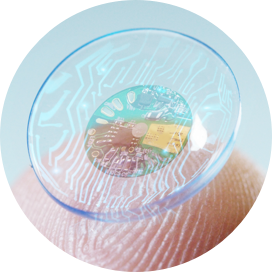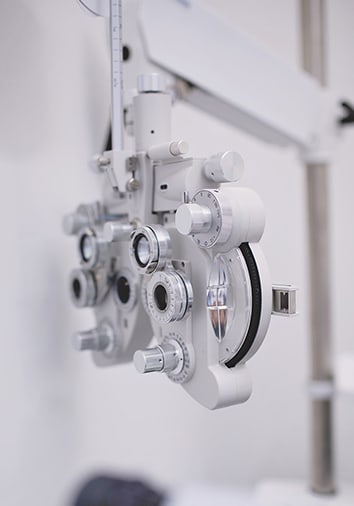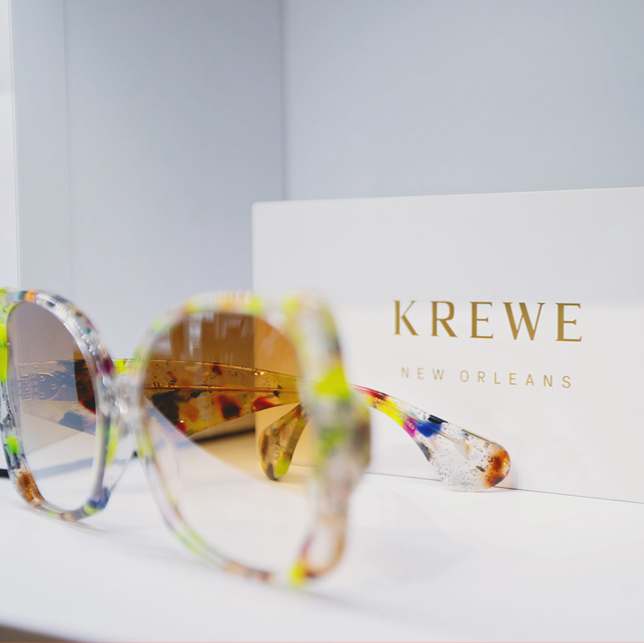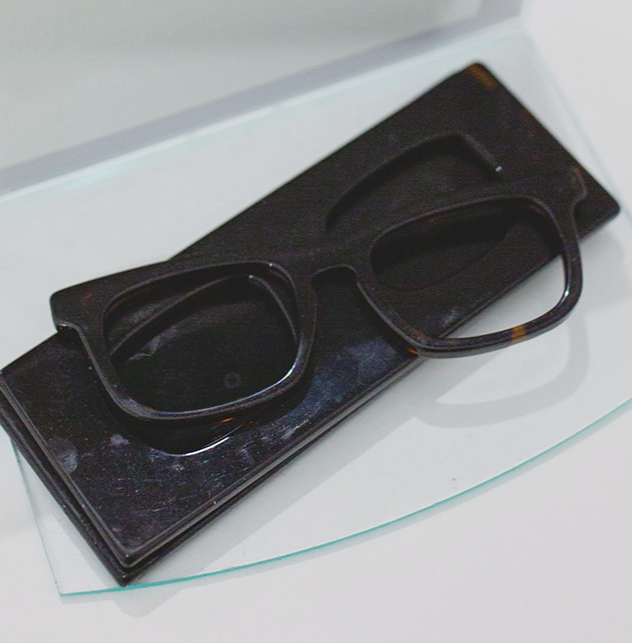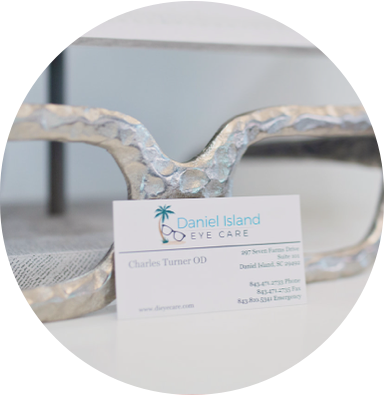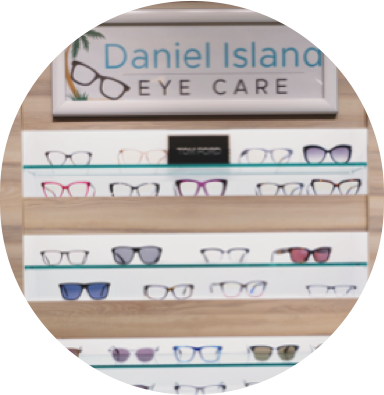Astigmatism can make it tough to get all the benefits of contact lenses. But what if we told you there are contacts made for people with astigmatism? You too can take a step away from glasses and discover the comfort of soft contacts thanks to toric lenses!
Toric lenses are designed specifically to correct the irregular curvature of the cornea that results in astigmatism. They are custom-designed and fitted for your eyes and offer a range of options depending on your needs and lifestyle.
What is Astigmatism?
Let’s start with the basics. Astigmatism is a vision condition that occurs when the cornea (the eye’s clear front surface) is irregularly shaped or curved.
Your corneas and lenses (positioned right behind the cornea) are typically round. Think of a basketball–smooth and even all the way around. This roundness lets light enter your eyes just right, bending (or refracting) evenly and giving you a clear view of your surroundings.
Unfortunately, not all of us have perfectly round corneas or lenses. Some of us have ones shaped more like a football—a bit longer in one direction and shorter in the other. That’s astigmatism! This slight change in shape means light doesn’t bend evenly when it enters the eye, leading to blurry vision.
Though it is still unknown what causes astigmatism, some potential risk factors include:
- A family history of astigmatism
- Eye injuries or surgeries
- Keratoconus
Astigmatism & Traditional Contact Lenses
There are 2 main reasons why regular soft lenses aren’t suitable for astigmatism.
Firstly, soft lenses tend to move around in the eye. This usually isn’t a problem. However, with astigmatism, the eye requires different prescription strengths in different areas. As traditional lenses spin or move around, they can’t align properly with the eye.
The second issue with soft lenses is that they’re designed to conform to the spherical shape of a normal eye, which means they can have difficulty fitting on an eye with astigmatism.
Sometimes, you can overcome this hurdle with rigid gas-permeable (RGP) lenses, which retain their shape while on the eye. However, advancements in lens technology have provided more options for people with astigmatism.
How Do Toric Contact Lenses Work?
Toric lenses use their unique shape to create varying focusing powers on each orientation, effectively changing the prescription across the lens. This is vital for astigmatism since your eye is effectively “squished” along one of those directions. If your eye is wider than it is tall, this is called horizontal astigmatism. But if your eye is taller than it is wider, doctors refer to that as vertical astigmatism. But this is only half of the toric formula.
Imagine taking a thin slice off the side of a basketball. What you’re left with is similar to the shape of a typical contact lens. It’s spherical and even all around.
On the other hand, toric lenses are based on a torus. A torus is a shape that looks a lot like a donut, and if you cut a thin slice off the side, you end up with a shape that’s heavier on 1 end. This extra bit of weight becomes the bottom of the lens and allows it to sit on your eye in the specific way it needs to.
Because toric lenses have a proper orientation, they need extra care during fitting. Special measurements, such as the axis, cylinder, and power, may need to be taken for an accurate prescription.

Types of Toric Contact Lenses
Toric lenses come in soft and rigid materials, including silicone hydrogel lenses. Soft lenses generally offer greater comfort and ease of use, but rigid gas-permeable lenses provide sharper vision and longer lifespan.
Depending on the lens type and your lifestyle, there are also daily, biweekly, monthly, and extended wear options. Your optometrist can help you determine the right lens for you based on your visual needs.
Contact Lens Care & Maintenance
Toric lenses require proper care and maintenance to prevent infections and complications like any other contact lenses.
The most important thing you can do to protect your contact lenses and eyes is to keep your hands clean. Before touching your lenses, wash your hands thoroughly with soap and water. Use a lint-free towel to dry your hands, as a regular hand towel can transfer dirt and bacteria to your lenses.
After washing your hands, clean and disinfect your lenses with the recommended solution according to the manufacturer’s instructions and schedule. If you are wearing reusable contact lenses, store them in a clean, dry case. Always fill up your case with fresh solution and replace the case itself every 3 months. Avoid sleeping in contacts or swimming with them, as these can increase your risk of infections.
If you experience any discomfort or vision changes, remove your contacts immediately and consult your eye doctor.
Are Toric Lenses Right for You?
Toric contact lenses can be an excellent option for people with astigmatism who prefer the convenience and aesthetics of contact lenses over eyeglasses or laser eye surgery.
Toric lenses aren’t for everyone, but you’ll only find out if you ask! Daniel Island Eye Care can talk you through your choices and help you make an informed decision.
Book your appointment today, and let’s explore the benefits of toric lenses!






